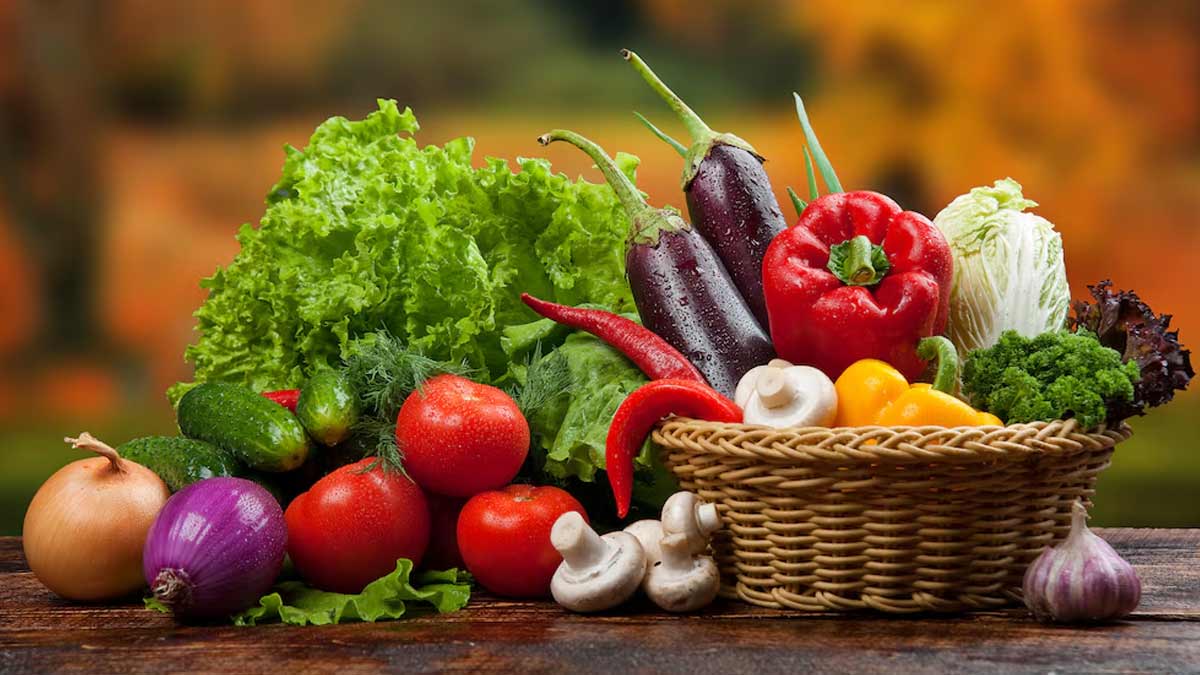
When the heat of summer kicks in, it’s essential that you make mindful choices about what you eat to stay cool and healthy. While vegetables are generally a crucial part of a balanced diet, some may not be the best choice during hot weather. They are best consumed in moderation or avoided altogether during the hotter months. Here are some vegetables to consider steering clear of during summer:
Table of Content:-
Root Vegetables
Root vegetables are hearty and nutritious, but can be heavy and heat-producing when consumed in large quantities. A study published in the Journal of Food Science found that root vegetables like potatoes exhibited higher heat capacity and thermal conductivity compared to lighter vegetables like summer squash and cucumbers, suggesting a potential for higher heat production in the body upon consumption.
Some examples of Root vegetables are:
- Potatoes
- Carrots
- Beets
Opt for lighter alternatives like summer squash, cucumbers, or leafy greens.

Onions and Garlic
While onions and garlic add flavour to dishes, they can also create heat in the body, which may not be ideal during summer. Use them in moderation or opt for milder alternatives like chives or leeks.
Spinach and Kale
These leafy greens are packed with nutrients, but they can also be high in oxalic acid, which can interfere with calcium absorption and may contribute to kidney stone formation, according to a study led by the University of Alabama at Birmingham. Enjoy them in moderation and balance with other greens like lettuce or arugula.
Bell Peppers
While bell peppers are a staple in many dishes, they can be challenging to digest for some people, especially in hot weather. Consider lighter options like sweet peppers or cucumber for salads and snacks.
Also Read: Roshni Chopra’s Morning Tea Recipe: Here's How It Can Clear Your Skin And Improve Digestion
Cabbage and Brussels Sprouts
Researchers from the Technological University of Dublin stated that cruciferous vegetables are nutritious but can cause bloating and digestive discomfort for some individuals. If you enjoy them, consume them in small portions and ensure they are well-cooked to aid digestion.
Hot Peppers
Spicy peppers like jalapenos, serranos, or habaneros can increase body heat and may not be the best choice during summer heatwaves. According to a study published in the Journal of Surgical Research, spicy peppers increase the production of acid in the stomach. If you love heat in your dishes, opt for milder varieties or use them sparingly.
Mushrooms
While mushrooms are a versatile ingredient, they can be slightly heat-producing in the body. Enjoy them in moderation and consider lighter alternatives like zucchini or summer squash for stir-fries and sautés.
Also Read: Here Are 4 Post Meal Drinks You Can Make At Home For Better Digestion

Summer can be a grueling time, especially in certain parts of the world. It is very easy to fall victim to dehydration, low blood sugar, digestive issues, heatstroke, or lack of energy during this hot time of the year. That is why it is essential to be cautious about your lifestyle and diet during summer months. By being mindful of the vegetables you consume during summer, you can support your body in staying cool and well-nourished. Remember to focus on hydrating foods like cucumbers, watermelon, and leafy greens, drink plenty of water, and listen to your body’s cues for what feels best during the warmer months.
Also watch this video
How we keep this article up to date:
We work with experts and keep a close eye on the latest in health and wellness. Whenever there is a new research or helpful information, we update our articles with accurate and useful advice.
Current Version